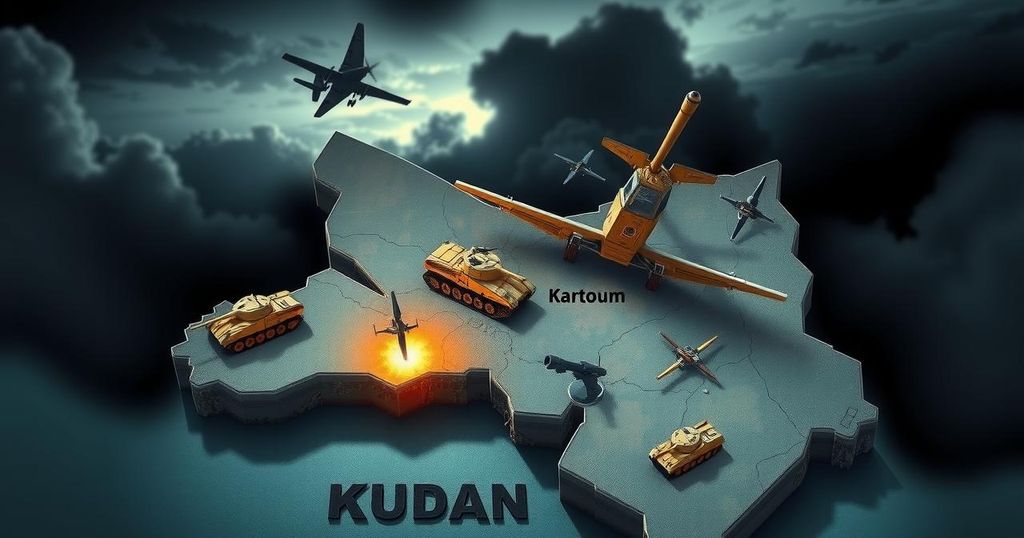Major Victories in Khartoum: New Developments in Sudan’s Ongoing Civil War
The Sudanese Armed Forces have claimed major victories against the Rapid Support Forces in Khartoum, hoping this may shift the momentum of the nearly two-year civil war. Despite controlling key locations, intense fighting continues across the nation, exacerbating a severe humanitarian crisis with millions displaced and in dire need of assistance. Experts fear the conflict may lead to the partitioning of the country.
In the ongoing civil war in Sudan, the Sudanese Armed Forces (SAF) have achieved significant victories in Khartoum against the Rapid Support Forces (RSF), raising hopes of a turning point as the conflict approaches its two-year mark. Despite these advancements, the combat between the SAF and the RSF remains intense and unresolved, continuing to devastate the country.
Recently, the Sudanese army has succeeded in reclaiming strategic locations in Khartoum. Army Chief Abdel Fattah al-Burhan announced full control over the capital following the recapture of the airport, previously seized by the RSF at the war’s onset, which provided them a tactical edge. Just days before this, the SAF regained control of the presidential palace, a symbolic victory in their counteroffensive.
The SAF’s control over Khartoum may shift momentum in the conflict and affect international perspectives regarding the warring factions, as both al-Burhan and RSF leader Mohammed Hamdan “Hemedti” Dagalo seek the endorsement of regional leaders. However, the SAF’s refusal to engage in peace negotiations suggests that progress toward resolution remains unlikely, despite potential leverage gained from these victories.
The initial cause of this war stemmed from disputes over integrating the RSF into Sudan’s armed forces, a rift that continues to widen. Both parties hold significant territory and are entrenched in ongoing combat, particularly in regions such as Darfur and Kordofan, indicating a persistent conflict with no clear end in sight. Civilian casualties are rising due to the escalating violence, including recent strikes that have shocked global observers.
The humanitarian fallout from this civil war is severe, with over 12 million people displaced and enduring dire living conditions. Food insecurity is rampant, affecting nearly 25 million individuals, and urgent health needs persist as hospitals have been largely incapacitated. Aid access remains blocked in many areas, exacerbating the crisis.
Experts predict that this conflict could lead to the partition of Sudan, spurred by the RSF’s recent establishment of a breakaway government. In light of historical precedents, such as South Sudan’s secession, the long-term outlook remains unclear, with an ongoing war of attrition likely unless a willingness to negotiate emerges from either side.
In summary, the civil war in Sudan has recently seen the SAF achieve significant victories in Khartoum, but the overall conflict remains unresolved with continuing violence and humanitarian crises. The humanitarian conditions are dire, marked by widespread displacement and food insecurity. As the war continues, expert opinions suggest that the country could be headed toward fragmentation unless a diplomatic resolution can be reached.
Original Source: www.aljazeera.com




Post Comment